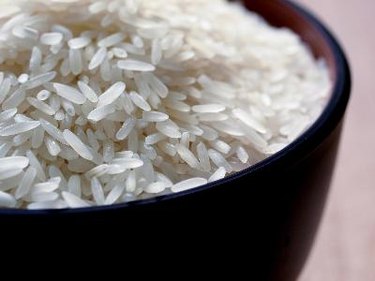
Whole grain rice, also known as brown rice, is simply white rice that hasn't been hulled. During the hulling process, whole grain rice is stripped of its outer bran and germ components, leaving just the endosperm. This is what we commonly know as white rice. Unfortunately, 70 percent of rice eaten in the United States is the nutritionally inferior white variety.
The Grain
Video of the Day
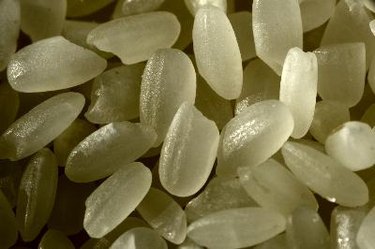
A grain of rice is made up of three parts; the bran, germ and endosperm. The bran is the hard, outer layer of the seed and provides most of the fiber. The germ is the embryo of the seed, from which the new plant sprouts and it contains most of the grain's fat and nutrients. After the milling process is complete, you are left with the endosperm and a mere fraction of the vitamins and minerals brown rice contains.
Video of the Day
Nutritional Numbers
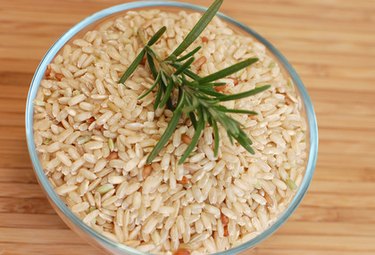
Brown rice is much more nutritionally dense than its white, milled counterpart. One cup of cooked brown rice has about 3.5 g of dietary fiber while a cup of white rice has less than 1 g. According to the USDA's 2010 recommendations, "Dietary fiber that naturally occurs in foods may help reduce the risk of cardiovascular disease, obesity and type two diabetes." Whole grain rice also has substantially more vitamin E, vitamin B-6, folacin, magnesium, phosphorus and potassium than white rice.
Cooking and Storage
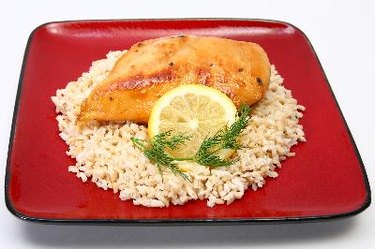
White rice usually cooks in about 20 minutes while whole grain rice can take up to 45 minutes. Whole grain rice has more of a bite to it, and some prefer its more wholesome flavor over white rice. Because whole grain rice contains more fat, it's prone to rancidity and therefore has a shorter shelf life. Whole grain rice will keep for just six months while white rice can stay good for several years.
Choose Your Grain Wisely
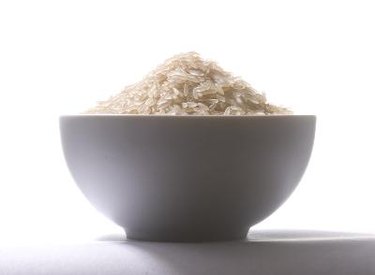
Each type of rice has its advantages and disadvantages. White rice is generally less expensive than brown and stays fresh longer, so it could be the more logical choice for families who want to buy in large quantities. Brown rice is nutritionally superior, and the higher fiber content will leave you feeling full longer. Because brown rice is still relatively inexpensive, incorporating this type of whole grain into your diet is both an easy and economical way to get on the path to healthy eating.